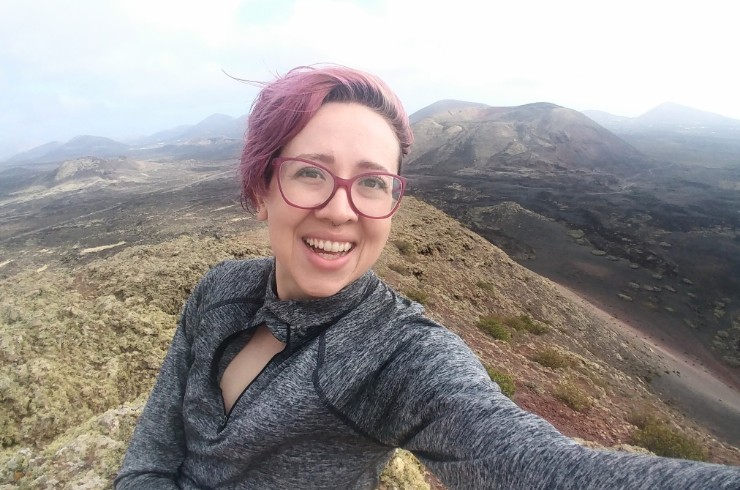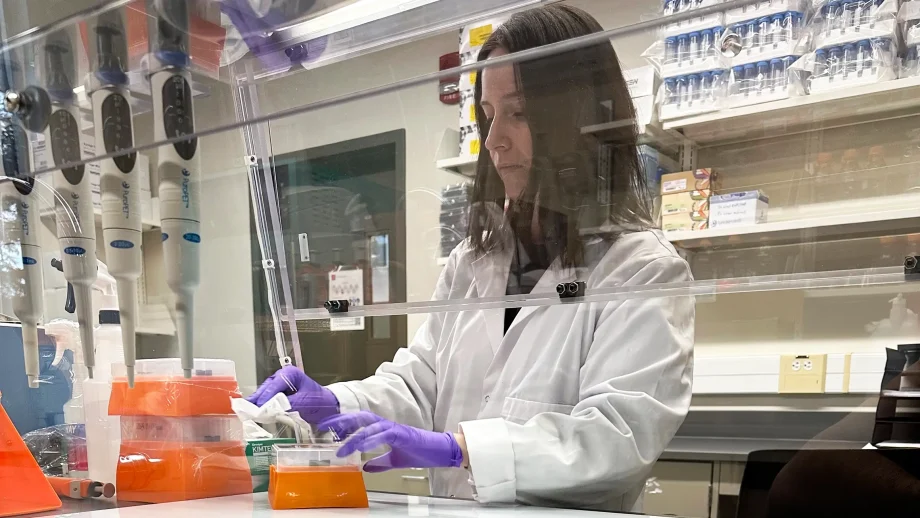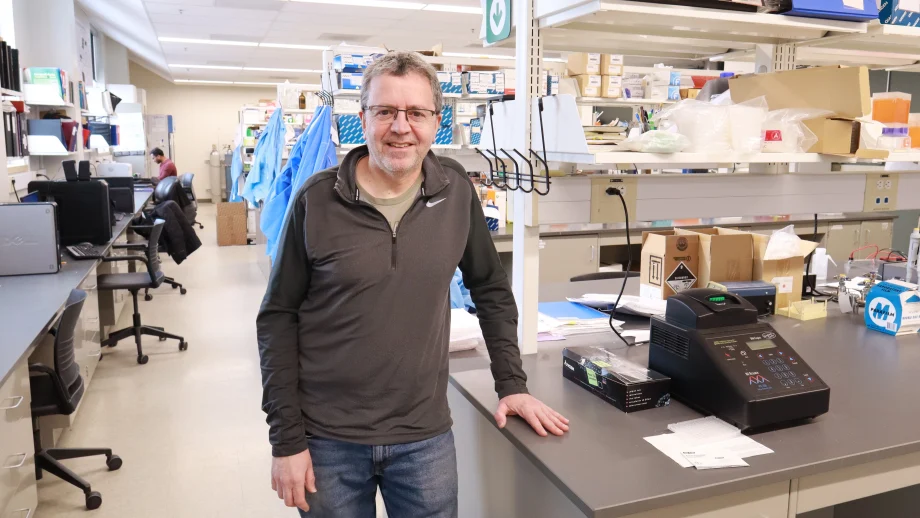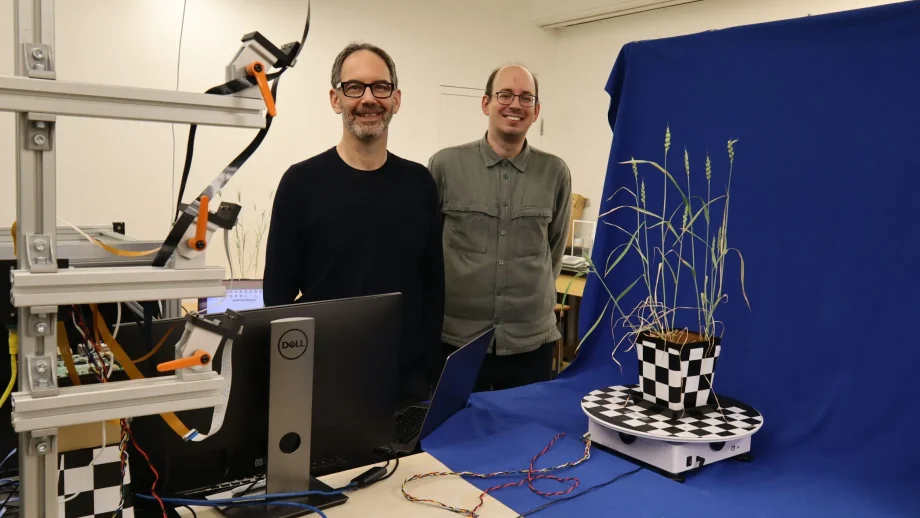Visiting student Jess Mollerup, from Western Washington University (WWU), United States, has come to UWinnipeg to study with geography professor, Dr. Ed Cloutis, internationally renowned for his expertise in earth and planetary remote sensing.
Mollerup is funded by NASA’s Solar System Exploration Research Virtual Institute and the Toolbox for Research and Exploration (TREX) grant to work with Cloutis in UWinnipeg’s Center for Terrestrial and Planetary Exploration Lab (C-TAPE). Mollerup is also doing planetary science research for Dr. Melissa Rice at the Western Mars Lab.
“My research adviser Dr. Rice, who collaborates with Dr. Cloutis on various research projects, wanted me to come and learn from him and the research students in his lab.”
The Cloutis C-TAPE lab is compromised of research students with backgrounds in geography, geophysics, biology, environmental science, and education.
While at UWinnipeg, Mollerop’s work for NASA has been sample preparation, and analysis of planetary analogue rock samples for the TREX project and C-TAPE .
“Dr. Cloutis has an impressively talented, hard-working, and insightful team of research students,” said Mollerup.”Opportunities like this, doing scientific research with passionate individuals from around the world, are exactly what drew me to the field of planetary science. The more scientists I work with, the more I grow as a scientist, and the more the field benefits and advances.”
Mollerup has always been fascinated by exploring the unknown, particularly in regards to space exploration. Her physics background has provided her with the tools to ask questions, challenge assumptions, and solve problems from new and unique perspectives.
“I was initially drawn to the interdisciplinary nature of planetary science research and have since found it to be the most rewarding scientific field of which to be a part,” noted Mollerup. “I love dabbling in different fields of scientific inquiry, gaining experience with a variety of skills, learning from scientists with varying backgrounds and experiences, and drawing connections across disciplines. This makes planetary science and space exploration my ideal field of research and I’m incredibly happy to have found such a perfect fit for both my passion and skill set.”
While at UWinnipeg, Mollerup also had the opportunity to participate in the in the Canadian Space Agency’s (CSA) Lunar Exploration Analogue Deployment (LEAD) mission with Cloutis and six UWinnipeg students.
“It was incredible to collaborate with scientists with a myriad of backgrounds and highlighted the importance of working on teams with diverse interests and skills,” she said. “The importance of this sort of interdisciplinary teamwork, which leads to unparalleled opportunities and scientific discoveries, was best articulated by the environmental scientist Alexander von Humboldt, ‘without a diversity of opinion, the discovery of truth is impossible.’
Mollerup is grateful for the support from Western Washington University, NASA SSERVI TREX, and C-TAPE which has afforded her incredible opportunities to contribute to the future of planetary exploration research.
Mollerup is an undergraduate physics research student with an interdisciplinary background spanning astronomy, chemistry, geology, and computer science at Western Washington University. She uses reflectance spectroscopy to characterize the spectral features and composition of Mars analogue rocks. For her future research she is interested in using remote sensing to study the icy planetary bodies in the outer solar system. Outside of the lab, she is passionate about science communication and working to build inclusive and equitable spaces in STEM for underrepresented and marginalized students.





